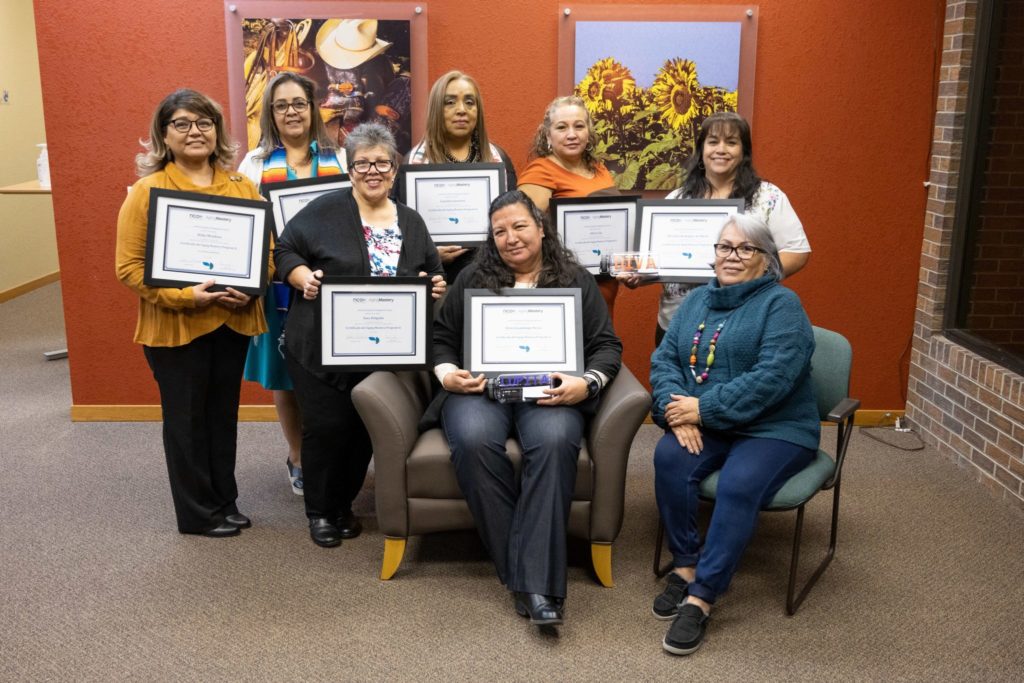
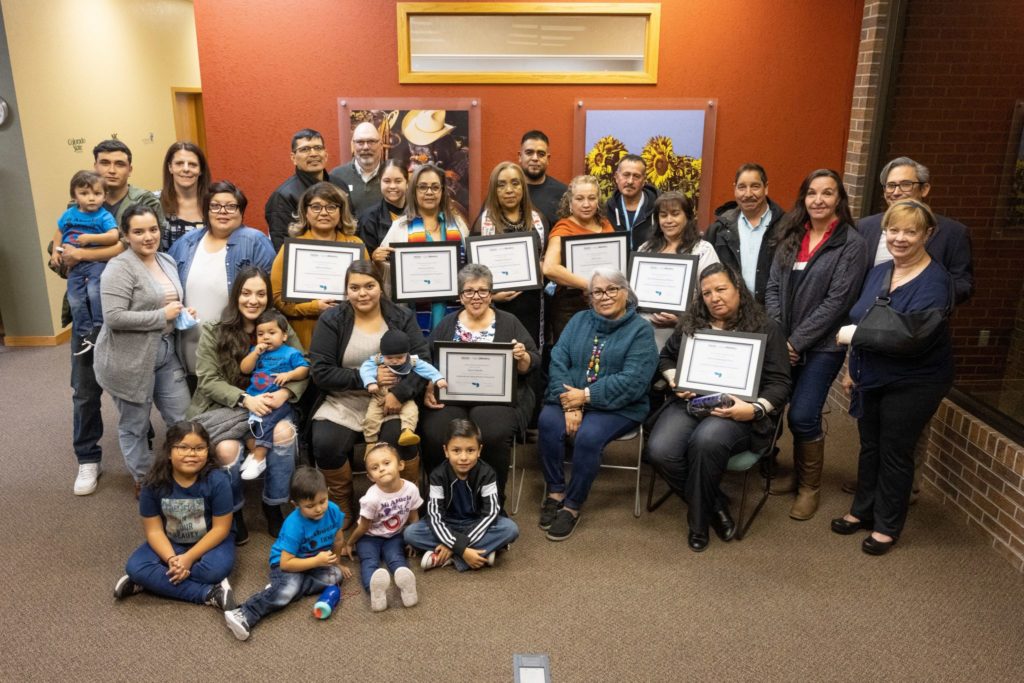
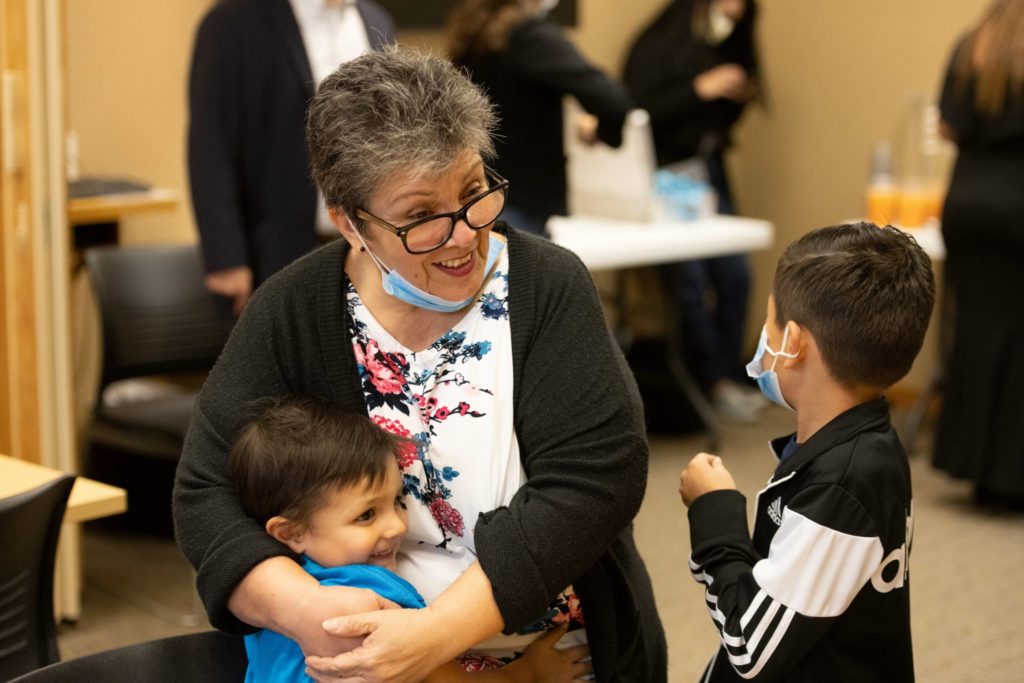
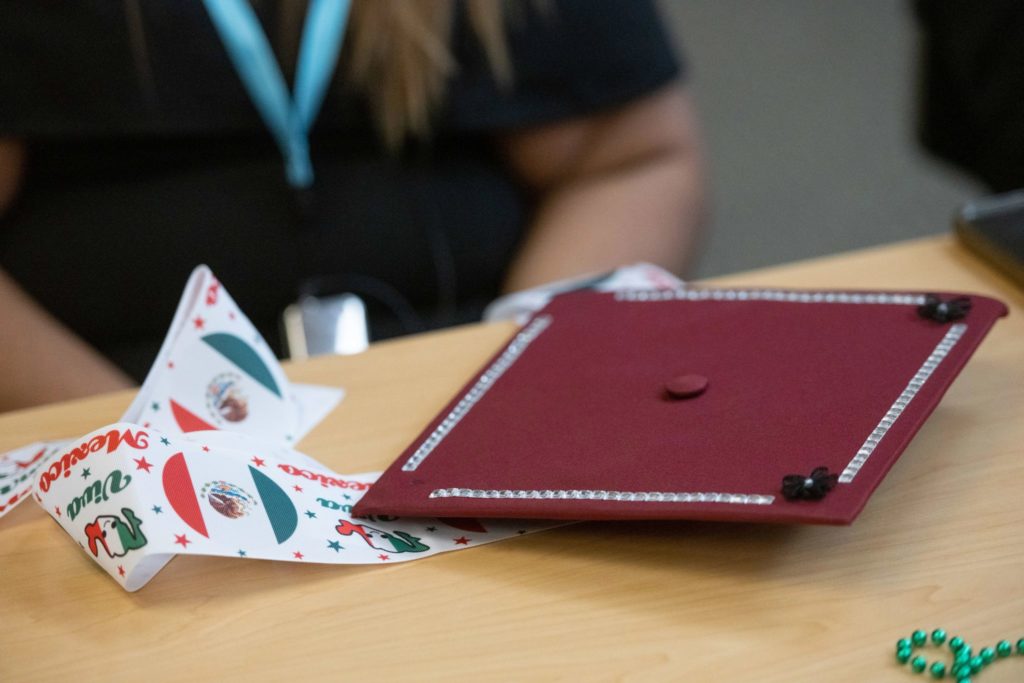
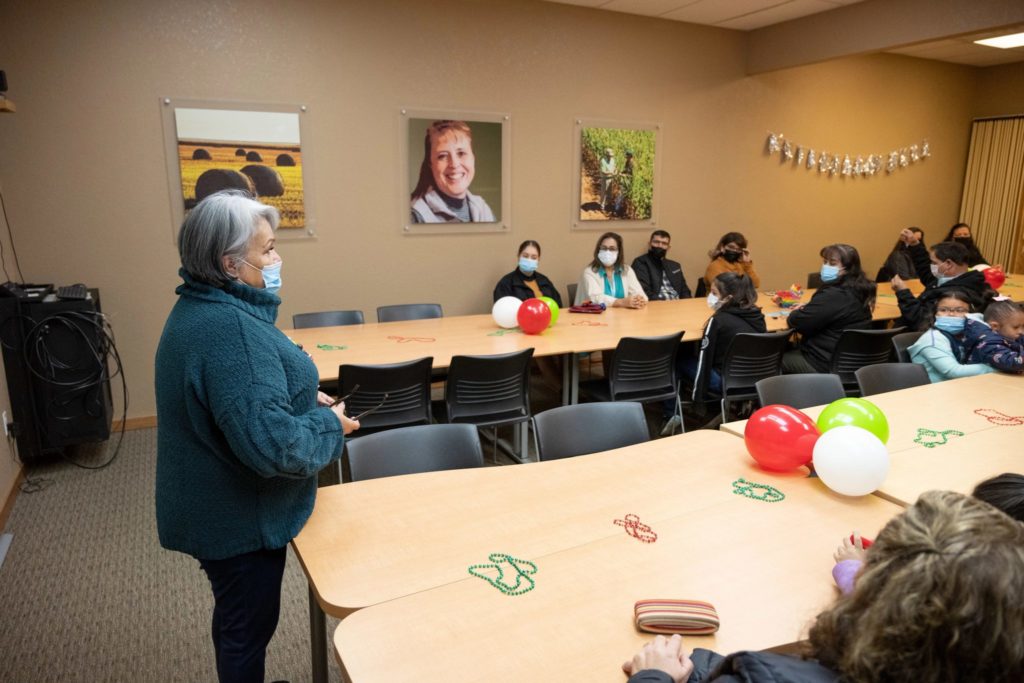
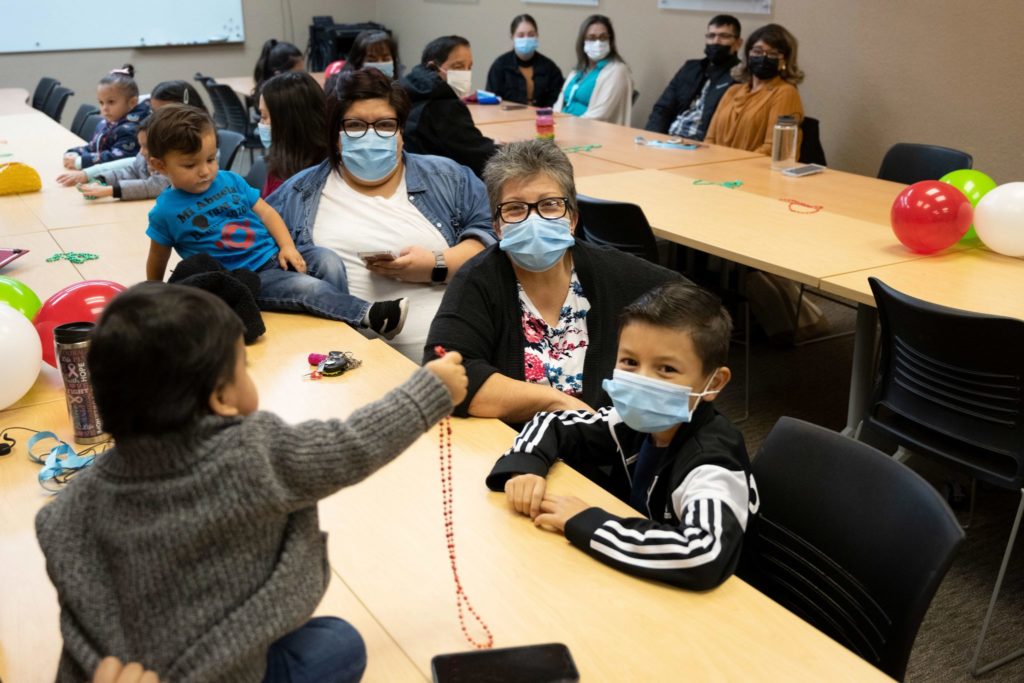
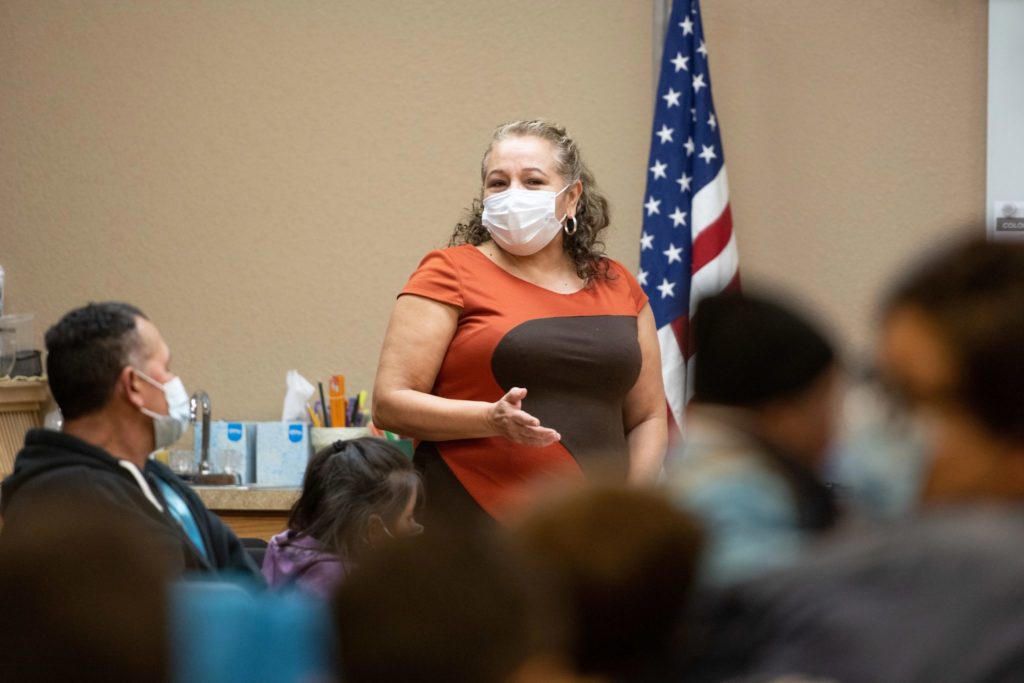
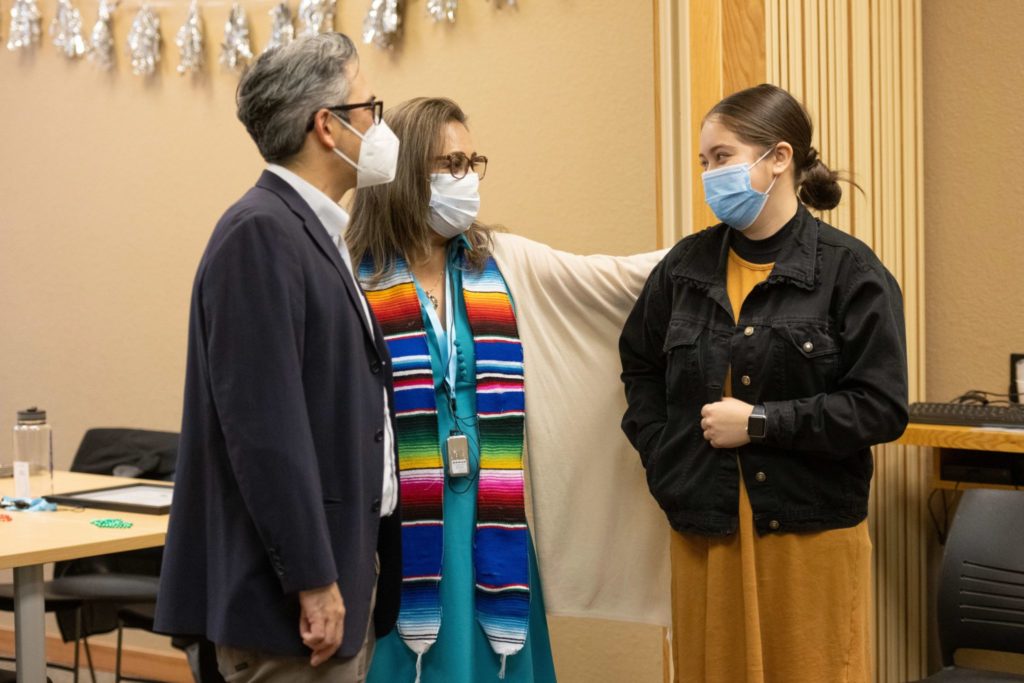
Silvia Ceja has lived in Fort Morgan for almost 30 years, but until this fall, she’d never participated in any programs at her local Colorado State University Extension office.
Recently, Ceja, 54, completed the Aging Mastery Program’s first Spanish language course from CSU’s Northeast Regional Engagement Center, which connects communities across the state to CSU faculty and research. But what made it so unique wasn’t just that the class — which focuses on teaching seniors how to live better, longer — was offered in her first language. It was that the program was specifically tailored to the underserved, older Latinx community’s needs.
Feeling unwelcome or uncomfortable in programs like this can be a big hurdle, Ceja said.
“Many times, we don’t know or we’re ashamed to ask if they have anything for us,” she said.
But it’s an important offering for a community that needs access to solid, research-based information on how to improve their quality of life as they age, she added.
“Because I have seen that many times as Hispanics, we think that once we are 50 — you can’t do anything else,” Ceja said.
Mastering aging in any language
That’s exactly the type of thinking that the Aging Mastery Program is focused on changing by teaching seniors how to navigate longer lives through things like better nutrition, sleep and exercise, as well as the importance of advanced planning and engaging with your community.
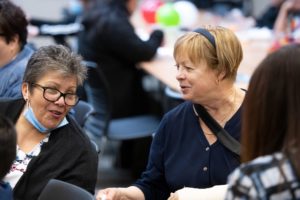
CSU Extension began offering the curriculum, which was created by the National Council on Aging, to seniors last spring, said Karen Ramey-Torres, director of the Northeast Regional Engagement Center, located in Sterling. The program has already been highly successful, but they knew there was a segment of the community that was missing.
More than 20% of residents in Morgan County and about 17% of Logan County speak Spanish as a first language.
“We felt that we were missing an opportunity to serve the community,” Ramey-Torres said.
The program already came with a Spanish language component, but organizers knew it would take more than that to connect with a population that had largely never set foot in an extension center before.
A new way of teaching
This program needed to actively engage members of the older Latinx community, not only by offering it in a language that they felt comfortable with but by revamping the entire delivery method of the class to better fit their needs, said Eric Ishiwata, extension specialist for the Office of Engagement and Extension, focusing on diversity, equity and inclusion.
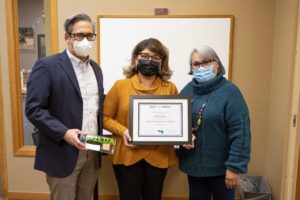
In one of the first efforts of its kind in the state of Colorado, the 10-week course — which received funding support from the Colorado Health Foundation — made access as important as the information itself, Ishiwata said.
Things that worked for other senior-focused classes in the past didn’t necessarily work here. Many of the participants either still worked outside the home or cared for grandchildren during the day, which meant the usual midday class schedule was a huge barrier. Also, most had never been to the senior center, where the class is typically held, so moving it to a location that was familiar — like the Centennial BOCES (Board of Cooperative Educational Services) office where adult ESL classes were taught — was important.
But it wasn’t just about logistics, Ishiwata said. Engaging the senior Latinx population meant going beyond just when and where the class was held to how it was taught and by whom.
“We knew that in order to make this program work in our region it would really depend on the human element,” Ishiwata said. “And it came down to finding that one leader within the community who not only had the interest in engaging in this type of education program, but also had the already established connections and trust of the Spanish-speaking, Latinx communities.”
A new teacher
A teacher back in her home country of Mexico, as well as a community leader in her current home of Fort Morgan, Dolores Del Campo was a natural fit for the job.
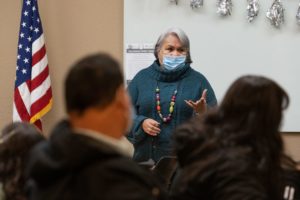
Del Campo, who alternated teaching classes in-person and virtually between Sterling and Fort Morgan, says she wanted to get the students to break out of their comfort zones, which for this community largely centers around going to work, church and home.
“It’s hard because in our culture after 50 or 60, it’s just taking care of your grandkids, and you’re done,” she said. “And we have to change their minds and say, ‘No, if I’m alive, I can learn something new.’ Hopefully with this group others can see that and come participate.”
Del Campo said she also wanted to push important topics that this community may even actively avoid, such as end-of-life planning.
“We never talk about planning before we die or when we’re really sick,” Del Campo said. “Maybe in your culture, final wishes are normal. But in our culture, it’s not normal. For many of the students, this was the first time that they talked about it.”
Del Campo said she even found herself learning along with her students from the curriculum, including the importance of regularly taking prescribed medications.
“For me personally, the topic of medicine was eye opening,” she said. “Because I’m not consistent with my medicine. I have high blood pressure. And when I feel fine, I never take it.”
While the first session of the program is over, Del Campo says she and some of the participants are already planning other ways they can not only work on themselves, but to engage with their larger community — from implementing a Spanish-language book club to an exercise buddy system to doing volunteer work.
Improving engagement for all
On both sides of the classroom, the connections and relationships that are opening up are priceless, said Peggy Stoltenberg, partnership and project development manager for CSU’s Northeast Regional Engagement Center.
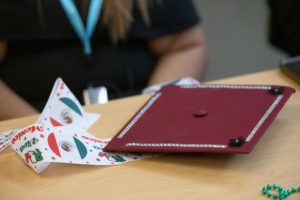
“Through Dolores, I feel like the participants have really opened up to us,” said Stoltenberg, noting that on the first day of class there was clearly some uncertainty from participants about the program. “It has been amazing over the past few weeks to see the students open up and trust us just a little bit more each time.”
The goal now is to keep the door open by adding additional programming in Spanish, using the lessons they’ve learned through the Aging Mastery effort.
“It’s really changed my mindset because now that I see that this can be done successfully, I’m putting that lens on every conversation that I have,” Stoltenberg said.
An achievement to celebrate
For some of the 11 graduates from this inaugural class, the certificate of completion was the first one they’d ever received, and that called for a celebration.
In November, both the Sterling and Fort Morgan participants met in-person together for the first time for a graduation ceremony, complete with families in attendance and food afterward. Students received framed diplomas and water bottles with their names on them — a nod to one of the program’s lessons on the importance of staying hydrated.
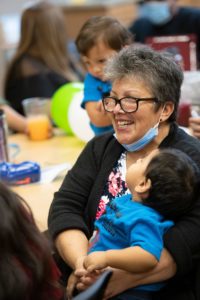
When Sara Delgado’s name was announced during the ceremony, the room exploded with applause from her family — including her five adopted children. Later they all gathered around her to pose for photos with her proudly holding her diploma.
That certificate is just the first step for Delgado. The 57-year-old Sterling resident is currently taking ESL courses and working towards getting her GED.
“I’m learning about a lot of things for them, and I’m really proud,” she said. “I’m really thankful for this country and this city because they opened their arms and showed me all of these things and gave me a lot of opportunities.”
Influencing and expanding
Ishiwata said the program has been so successful that the Denver County Extension office is now looking at offering it.
“We are hearing from participants, ‘We’ve been wanting something like this, but we had nowhere to go,’ or ‘We didn’t know these things existed,’” Ishiwata said. “So, I think the real lesson out of this, for Extension as a system, is that there’s a real need out there for this. We have underserved or unserved residents that are looking for exactly the type of programming that Extension has been offering for the last 100 years. And with some small adjustments and a lot of patience and grace, we’re going to be able to bridge that gap in ways that benefit all Colorado communities.”
About the Colorado State University Office of Engagement and Extension
Colorado State University’s Office of Engagement and Extension delivers on its land-grant mission by making the university’s educational programs, services and resources accessible to all, enabling individuals to act as agents of change and together build thriving communities across Colorado and beyond. For over 100 years, CSU Extension, a unit within the Office of Engagement and Extension, has helped people in Colorado find the answers they need for a healthy home life, successful business and thriving community.
Learn more about our work and the Northeast Regional Engagement Center at engagement.colostate.edu.